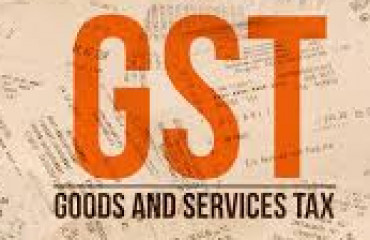
BENGALURU/NEW DELHI : The GST Council is set to give extra time for officials to demand tax dues and for businesses to seek refund for past years in view of the disruption caused by the pandemic. The Council may also revise tax rates on certain items such as accessories used by cancer patients, imported defence items and tetra packs.
BENGALURU/NEW DELHI : The GST Council is set to give extra time for officials to demand tax dues and for businesses to seek refund for past years in view of the disruption caused by the pandemic. The Council may also revise tax rates on certain items such as accessories used by cancer patients, imported defence items and tetra packs.
The Council is also likely to clarify on taxability of several service sectors such as ice-cream parlours, ropeway travel and rental of transport vehicles, as per the agenda for the Council meeting, reviewed by Mint. The Centre and states will also consider several rule changes meant to improve tax compliance at the two-day meeting of the Council starting on 28 June.
Extra time for demanding tax dues and refunds is being proposed in view of the covid-related disruption which slowed down procedures. The law currently allows a tax official to demand any tax that has not been paid or wrongly refunded within three years from the annual return filing due date. The plan is to give time till the end of September 2023 for raising tax demands for FY18. Without this change, officials would have had time only till early February 2023 for issuing demands for FY18, given that the extended due date for annual return filing was in February 2020. Besides, the period between 1 March 2020 and 28 February 2022 will be excluded from the calculation of the limitation period for businesses to seek tax refunds, as well as for tax inspectors to issue demand in the case of erroneous refunds.
With a planned major revamp of tax rates and slabs deferred due to a surge in inflation, fiscal woes of state governments and steps to boost the GST system's efficiency are set to be in focus at the GST Council meeting. The Council is expected to take up proposals to remove tax exemptions and correct the inverted duty structure, in addition to examining proposals by a ministerial group that recommended tighter enforcement and GST registration process led by data analytics.
The Council is likely to take up changes in GST rates on items where a so-called fitment panel has recommended revisions. It suggested that a group of ministers on rate rationalization should examine a GST rate increase on cut and polished diamonds to 1.5% from 0.25%. The panel argued that a reduced rate on cut and polished diamonds was causing duty inversion and blockage of tax credits for the gems and jewellery industry.
The panel has proposed lowering GST rates to 5% from the current 12% on ostomy appliances including the pouch for collecting waste from the body, which is used by cancer patients. It has also recommended a uniform rate of 5% for orthopaedic implants, braces and artificial limbs.
"The way to increase revenues is to plug pilferages. There will be total focus on plugging leakages. With that, you will have so much revenues that one could even reduce rates. It is the inefficiency of the administration if the revenues are not adequate. Increasing rates is not the solution. Have an honest tax regime, low rates, and higher revenues," a state finance minister said on condition of anonymity.
Experts expressed hope that the focus on compliance does not affect honest businesses. "Businesses would hope that the revenue pressures on states due to the proposed end of GST compensation do not lead to increased audits on compliant taxpayers," said M.S. Mani, a partner at Deloitte India.
The committee also recommended that the basic customs duty and integrated GST exemption on certain defence items may be extended to imports by private entities, provided that the end user is the defence forces. Currently, this exemption is only available on imports made by the armed forces and state-run firms.
The GST rate on tetra pack could rise from 12% to 18% to bring it on par with other packaging items like cartons and plastic bottles that attract 18% GST, if the recommendations get approved by the Council.
"In terms of the GST structure at inception, it was expected that there would be very few exemptions as they distort the value chain. Hence, any move to remove or reduce exemptions would be in line with the architecture of GST as originally envisaged," said Mani at Deloitte.
Emails sent to the finance ministry and to the GST Council secretariat on Wednesday remained unanswered till press time.
